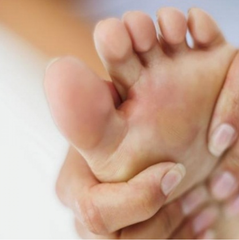
What Exactly is Uric Acid?
Uric Acid is produced when our bodies metabolically breakdown a substance called purine that is found in certain foods.
Uric Acid is then carried to the liver and into the blood. Most of the uric acid will pass through our kidneys and will then leave the body as urine.
Uric acid often only becomes a problem when our bodies are producing too much or our kidneys are not eliminating uric acid quickly enough.
An excess of uric acid or hyperuricemia can accumulate in the tissues which could then form crystals in certain joints. This may cause high uric acid levels in our blood.
Elevated levels of uric acid in our bodies can lead to certain symptoms such as kidney stones, gout, arthritis, stiff joints and muscle pain. Factors that can cause elevated levels of uric acid are alcohol, genetics, purine rich foods, obesity, renal insufficiency, chemotherapy and certain cancers.
Lowering our bodies uric acid levels can help to prevent the painful systems of hyperuricemia.
|
|

High Uric Acid? Foods to avoid in Gout Diet:
Gout is painful type of arthritis, which generally happens in the cooler extremities of the body when uric acid crystallizes and is dumped in tissues and joints of the body. It can occur in the places such as feet, ankles. wrists, fingers and elbows.
The most common place is the big toe. gout can cause severe pain and inflammation. It is related with diet, particularly intemperance in seafood, alcohol and meat. In this article there is information about the food that should be avoided in gout.
Gout is a condition that typically affects men and post-menopausal women. To retain body weight is significant, as gout is more common in overweight people. Gout is caused by the foods which are high in Purines. Purines happen naturally in the body but it is also got from certain foods. The body breaks down purines in to uric acid.
Reducing purines in the diet it tackles gout and loses weight. Different medicines are use to treat gout but they have potential problems and side effects and as well as expensive. People prefer natural treatment that has no side effects. For treating gout and to avoid complications, dietary change with low purine food can help. To limit gout attacks it is also important to eat healthy foods.
Common Gout Patient Complaints
• Acute attack of gout
• Gout, Arthritis
• Toe Joint Pain
• Elevated Uric Acid levels in the blood
• Tenderness in joints
• Swollen big toes & feet
• Inflammation and redness at the join
• Intense joint pain
• Overload of Uric Acid in the body
• Swollen toe joint pain
• Chronic gout conditions
• Gout Big Toe
• Symptoms of gout:
The most common sign of gout is redness, tenderness, swelling and sharp pain usually in the big toe during the night. This symptom is called podagra.
There is limitation of movement in the affected joint.
Around the affected joint the skin becomes red or purplish.
There is rapid increase in discomfort in the night. lasting for some hours and then easing during the next few days. During the night Intolerable and intense pain starts in the affected joint.
After the Gout attack, the skin around the affected joint may peel and feel itchy.
You may have fever.
Joint deformation and destruction can occur if several attacks of Gout happen each year.
Foods to avoid with Gout:
Avoid Purines:
Foods that are high in purines should be avoided. In purine foods uric acid is found in high amount. Meat products like internal organs. kidneys, liver, heart and other parts of animals. To keep the uric acid levels low these foods must be avoided.
Avoid alcohol:
Alcohol interferes with the removal of uric acid. Particularly. Consumption of beer has also been associated to gout attacks. It should be avoided if a person is having an attack. Drinking one or two 5-ounce servings a day of wine does not increase the risk of gout
Sea Salt:
Another food that increase the uric level is sea salt. Sea salt does not need to be ingested frequently so it should be used minimum. Sea salt use can be alternated with regular iodised salt. Iodine is added to regular salt and it is also an essential mineral that everybody needs. Make sure that sea salt is not an
ingredient in the foods that you eat, especially nuts and seeds.
Avoid sugar:
Too many sweets leave no space for plant-based proteins and low-fat foods that are needed to avoid gout. Sugary foods have high calories. There is debate about whether sugar has a direct effect on uric acid levels. Sweets are definitely linked to overweight and obesity.
Other Foods:
Foods like sugary sweet breads. High fructose corn syrup and sucrose. High fructose foods can also cause problems with the person having gout. Foods having high purines. High uric acid and high fructose work together to cause gout.
You can refer to Low Purine Diet and food to avoid completely for gout.
Things to do if Diagnosis of gout is confirmed:
Drink plenty of liquids. Particularly water: Uric acid is removed from the body with the help of fluids. Drink eight to 16 B-ounce (237 millimeter) glasses a day.
Eat more plant-based proteins:
By including more plant-based sources such as beans and legumes protein in the body increases. This will also help to reduce saturated fats. Which indirectly contribute to obesity and gout.
Choose low-fat or fat-free dairy products:
Drinking low-fat milk and eating foods made with low fat milk. Such as yogurt, help to decrease the risk of gout. Aim for sufficient dairy intake of 16 to 24 fluid ounces (473 to 710 milliliters) daily.
Choose complex carbohydrates:
Eat more whole grains and fruits and vegetables and fewer refined carbohydrates, such as white bread. Cakes and candy.
Foods High in Purines but Safe:
Purines are found In all protein foods. But all high purine foods and protein foods are not bad. Vegetables like asparagus. beans. peas. cauliflower. mushrooms. peas. spinach, whole grain breads and whole grain cereals and meat like chicken. duck. ham and turkey are high in purines but do not pose any risk for gout.
|
Causes of Gout
FACTORS THAT CAN CONTRIBUTE TO DEVELOPING gout
goul is a painful type of arthritis which is caused by unhealthy levels of Uric Acid in the blood.
Symptoms of goul are painful and are commonly experienced in the big toe, ankles, feet, wrists or elbows, painful gout episodes can last days or weeks. If left untreated, gout can cause damage to the joints and kidneys. There are many factors that can contribute to a person having a high Uric acid build up and developing goul.
MEDICATION
Certain medications increase the bodys uric acid levels such as Diuretics (used to treat high blood pressure) and Niacin which is used to treat high cholesterol levels. Chemotherapy can also cause a sudden onset of gout.
SEX
Men are far more likely to develop goul as their uric acid levels rise during puberty. Women can experience a rise in uric acid levels during menopause. This could explain why women experience symptoms later in life.
DIET
The body produces uric acid when it breaks down purines. Purines are found naturally in our body but certain foods contain high levels of purines eg beef, bacon, pork, seafood, lamb, liver and kidneys.
ALCOHOL

Beer, spirits and wine contain purines which raise the bloods uric acid levels. Beer and spirits generally tend to contain higher levels of purines then wine. Moderate consumption of wine should not significantly increase risks of gout.
SUGARY SOFT DRINKS

A study has found that men who regularly drink sugar sweetened soft drinks or drinks with high levels of fructose had a risk of developing gout.
GENETICS

Gout has been found to run in families. 1 in 5 people with gout have a close family member with the same condition. Certain genes inherited could cause otherwise healthy kidneys to be inefficient at excreting Uric Acid.
MEDICAL CONDITIONS
Medical conditions such as high blood pressure, diabetes and high cholesterol can also increase your risk of developing gout.
Remember that a healthier lifestyle can help to minimise your risk and symptoms of gout.
|
Gout & Natural Gout Remedies
Gout occurs as a result of acid (uric acid) accumulating in the extremities of the body such as the toes. When the acid crystallizes it becomes sharp and hard, resembling salt crystals, causing pain and inflammation. Poor circulation is also an aggravating factor as it encourages the accumulation of uric acid in the joints of the extremities of the body.
remedies:
Herbs: Birch, celery, willow, devils claw, turmeric, boswelia, cayenne. Supplements: B3, calcium and magnesium, quercetin, bromelain.
|
|
15 Gout Fighting Foods
Isn't it wonderful that eating correctly can assist our body to fight many ailments? Below is a list of foods, some of which have natural anti-inflammatory and anti-oxidant properties. A healthy daily diet with foods rich in Vitamins and minerals helps our bodies to naturally prevent or alleviate symptoms such as gout.
|
 |
Use left/right arrows to navigate the slideshow or swipe left/right if using a mobile device